Post
A catch
Save a catch to start your fishing logbook. You will be able to to share it with the community if yo want!
A fishing trip
Post an ad to go fishing with other fishermen
Save a catch to start your fishing logbook. You will be able to to share it with the community if yo want!
Post an ad to go fishing with other fishermen
Share a thought, a question with the community
My favorite cities
×Join our 326 fishermen in Clynnog-fawr in Gwynedd. The fishing forecast is currently 4.6. The most caught fishes here are the wrasse fish , the garfish, the dab fish and the john dory fish. Come try the most famous fishing techniques like the support fishing for black sea bream, pole feeder fishing, jig fishing or cast fishing for mackerel or bass trolling.
Our fishing forecast of Clynnog-fawr indicates the best time to go fishing in this city.
The Wrasse fish
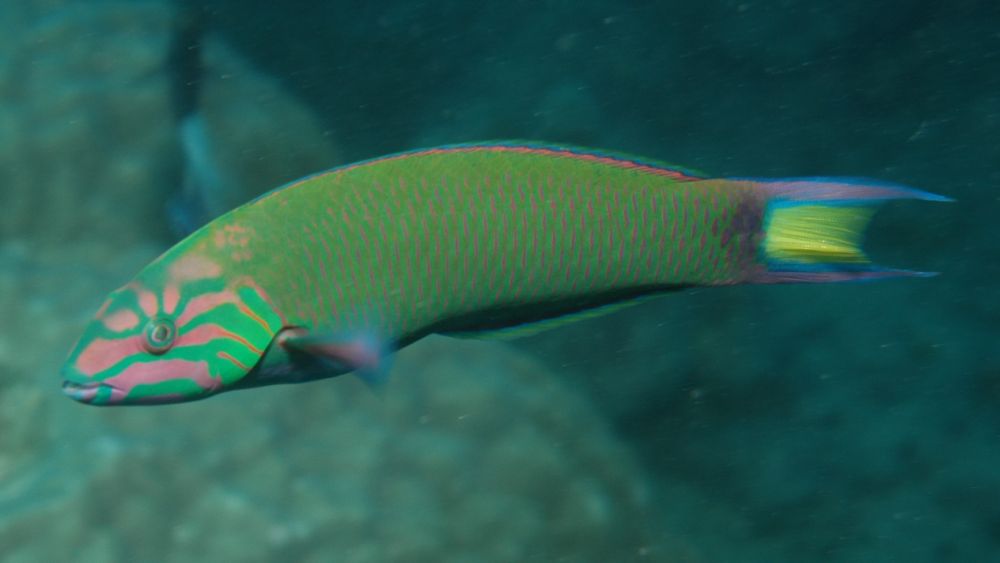
The Wrasse fish belongs to the Labridae family. Labridaes are marine fish, the Wrasse of the Labridae family, in the order of Perciformes. The family is large and diverse, with about 500 species of fish generally very colourful, grouped into 60 genera. The large number of species of wrasse offers an incredible diversity of colors, shapes and sizes with possible geographical variations between some individuals of the same species. In addition, like parrot fish, many livers evolve over the course of their lives according to their maturity and their position within the group. These evolutions can be considered in different phases (juvenile, intermediate or initial and terminal) at each of them, morphological modifications (size, shape and color) take place. All these variations in livery during the existence of a wrasse make it particularly difficult to identify between species, the risk of confusion is great and this even for specialists. During the juvenile phase, the dominant colors can vary from bright yellow to orange, as well as dull colors such as grey and brown with camouflage patterns. In the intermediate or initial phase, the wrasse is both male and female, adult but subordinate to the dominant individuals and therefore smaller with dull colors and cryptic patterns. However, in the terminal phase, depending on the species, fish can change sex, size and livery. The latter becomes a distinctive visual element within the group and is very colorful with red, yellow, gree
The Wrasse fish is a famous fish you can catch in Clynnog-fawr.The Garfish
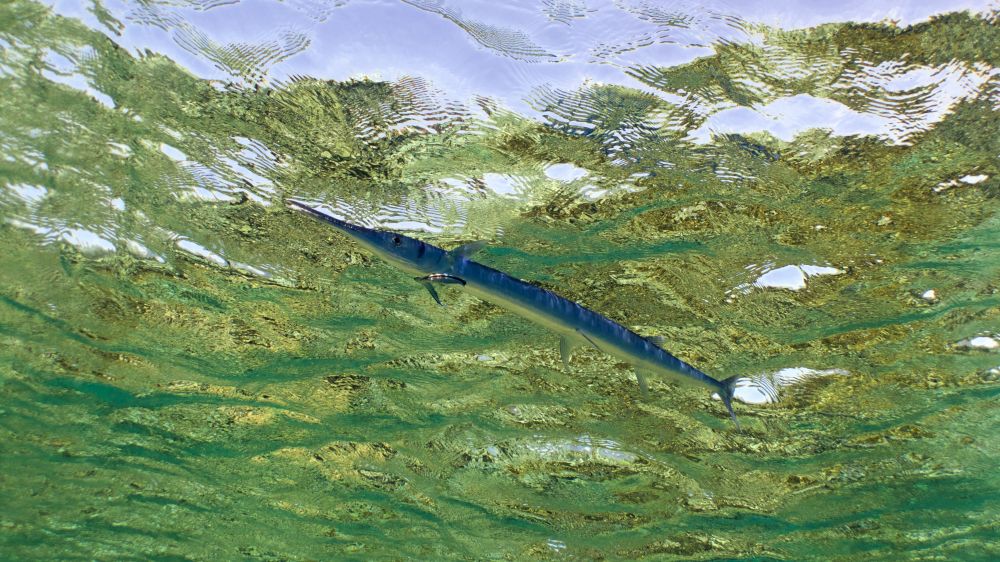
The Garfish belongs the Belonidae family. It measures from 30 cm to more than one meter and can weigh up to 5 kg, the average weight being around 400 g. It has a lifespan of about 10 years. It breeds from Mai to June. The female lays thousands of eggs. The Garfish is a fish with a very tapered body of oval cross-section. The head extends into a long beak formed by two thin jaws armed with sharp teeth. The lower jaw is slightly longer than the upper jaw. The nostrils are located in a depression in front of the eyes. The ventral fins are located approximately in the middle of the body, the caudal fin is very indented, the dorsal and anal fins are very far back, at the same level. The back of the dorsal fin is the same height as the back of the anal fin. The caudal peduncle has a strong hull. The very low lateral line is on the belly and not on the sides like other fish. The back is a dark blue-green, the sides are silvery, the belly white, the edges green.
The Garfish is a famous fish you can catch in Clynnog-fawr.The Dab fish
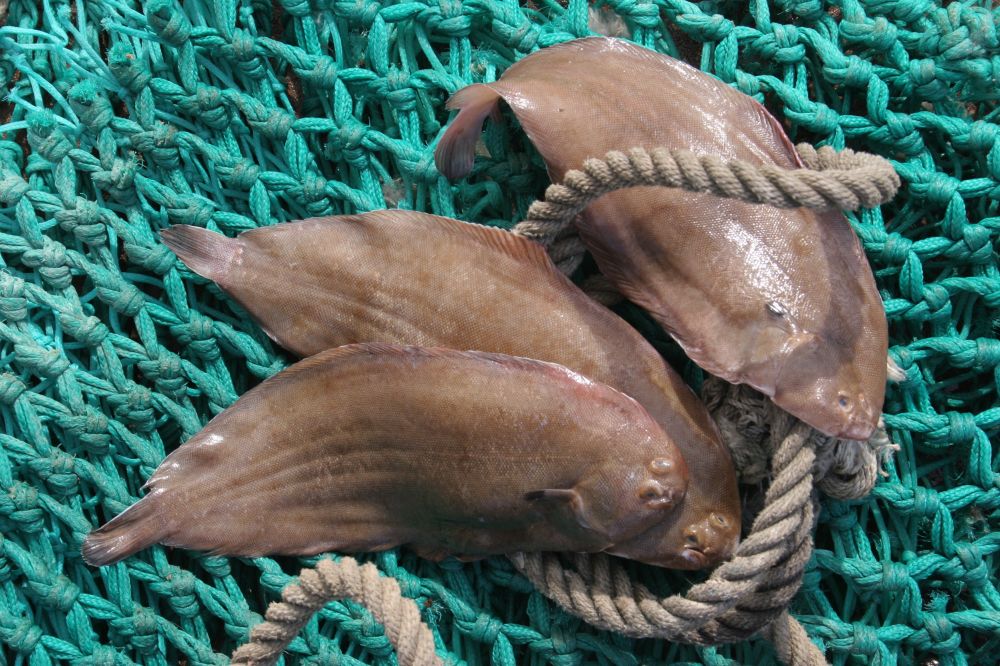
The Dab fish belongs to the Pleuronectidae family. It has an average size of 25 to 40 cm with an average weight of 1 kg. It has a lifespan of 12 years. The Dab fish breeds from February to April. The female lay up to 150,000 oocytes. The Dab fishing is open from October to Mars. the minimum catch size is 25 cm. The Dab fish, scientifically named Limanda Limanda, is a teleosteal species that belongs to the pleuronectidae or flatfish family. It has a flattened body with a more or less oval shape. The eyes of this dexterous fish are both generally located on the right side. The animal has a tiny mouth with small teeth. Its lateral line is curved at the pectoral fin. A characteristic feature that allows it to be easily distinguished from other species with similar morphology such as flounder. Thin scales cover the upper surface of the flounder, making its skin rough to the touch. The back is golden or yellowish brown in color and has dark spots. The belly or blind face is white. Varying from beige to light brown, the general color of dab allows it to blend in with the backgrounds.
The Dab fish is a famous fish you can catch in Clynnog-fawr.The John Dory Fish
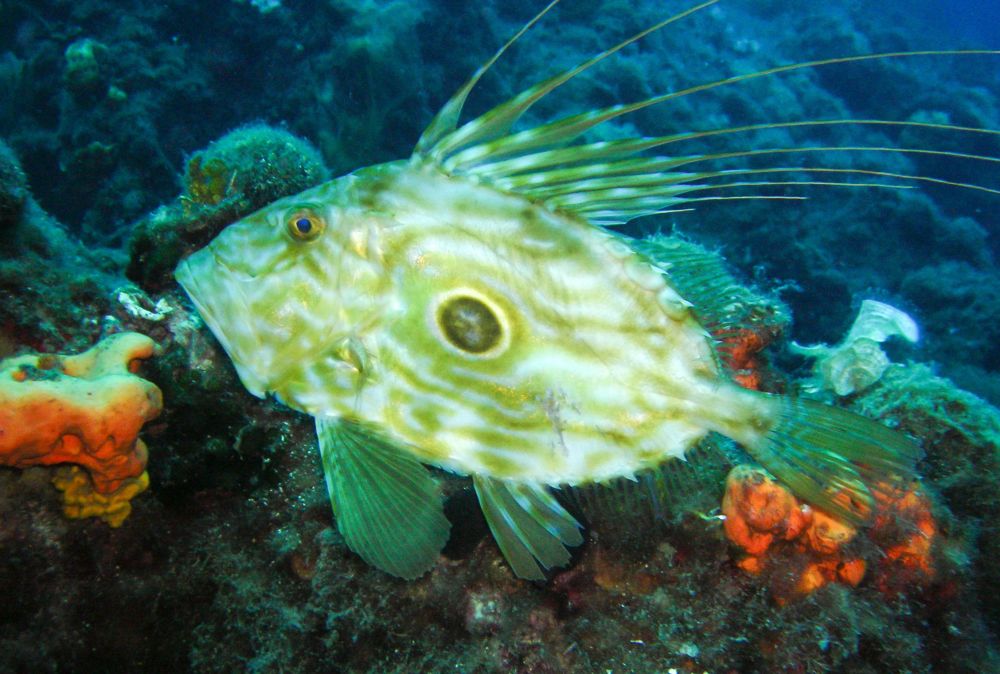
The John Dory fish belongs to the Zeidae family. It measures 30 to 50 cm on average and can reach a maximum weight of 8 kg. It can live up to 12 years. This fish is caught all year round but more easily from April to July. This fish has a high body and very strongly compressed laterally. Its head and the base of its fins carry thorns and bone ridges. The filaments carried by the dorsal fin are very long in juveniles and gradually regress until the animal reaches its adult size. Its eyes are high and his protractile mouth is widely split. An arched lateral line can be seen above the pectoral fins. Its color varies from grey-green with silvery to golden yellow reflections, often marked by longitudinal mottling. A large black eye patch surrounded by grey adorns the middle of each flank.
The John Dory Fish is a famous fish you can catch in Clynnog-fawr.The Pouting fish
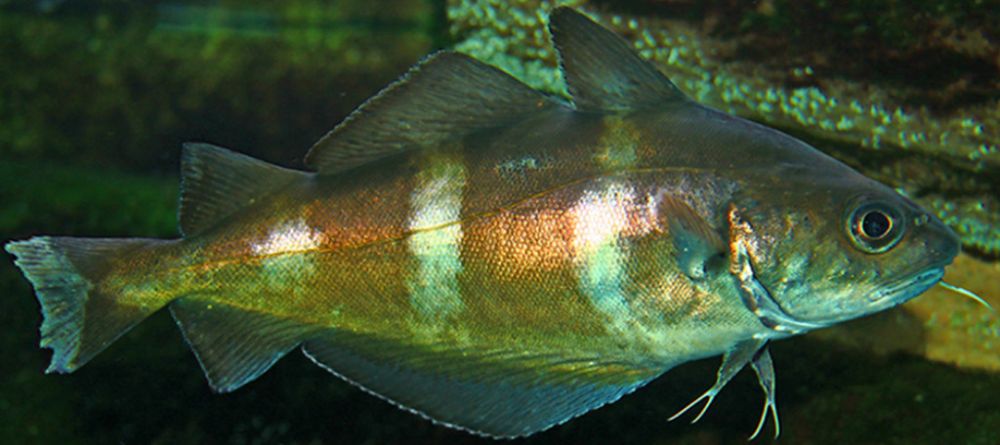
The Pouting fish belongs to the Gadidae Family. Its longevity is short: 4 years for a maximum size of 45 cm and a weight of about 1kg. Breeding takes place in March-April and is fished all year round. This small fish, generally 20/30 cm, rarely 45 cm, has an oval body, flattened laterally. Beige/pinkish white, slightly coppery, it can, especially when it is close to a poorly lit area (cave, wreck), have four to five wide dark vertical stripes. These bands may be absent in sunlight or on dead fish. The lower jaw is slightly set back, giving the pouting fish a characteristic profile with a small "nose". The eye is quite large, and a barbell is clearly visible under the "chin". The pouting fish has, like other Gadidae, three dorsal fins and two anal fins. A black spot is clearly visible at the base of the pectoral muscles.
The Pouting fish is a famous fish you can catch in Clynnog-fawr.Our fishing forecast of Clynnog-fawr indicates the best time to go fishing in this city.
Our fishing forecast of Clynnog-fawr indicates the best time to go fishing in this city.
Our fishing forecast of Clynnog-fawr indicates the best time to go fishing in this city.
